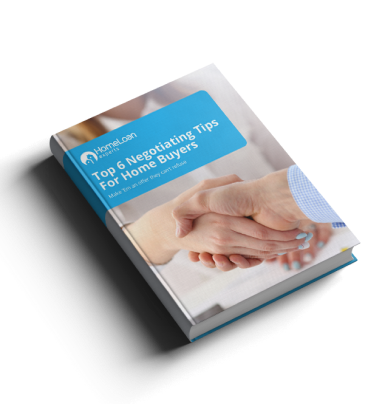There are two ways to purchase a home in Australia – private treaties and auctions. A private treaty is when the vendor and the buyer, or their agents, come together to negotiate an agreement to purchase the property. An auction is when a group of buyers bids on the property, and the highest bidder above a set minimum – called the reserve – gets the property.
A pre-auction offer is simply when buyers make an offer before the property is up for auction. Once the vendor accepts an offer, contracts are drawn and signed, and the auction is called off. Pre-auction sales can occur for various reasons. Sellers may get great offers before the auction or get cold feet worrying that buyers will not show; they may have concerns that the property will not get a good rate or meet its reserve price. Vendors may also sell pre-auction if they need quick cash.
At Home Loan Experts, we’ve guided countless clients through the often tricky world of property purchasing, turning confusion into confidence. We offer guidance so that our clients are fully prepared, whether they’re buying through a private treaty or bidding at an auction.
Top 6 Negotiating Tips For Home Buyers
How to negotiate at an auction? Learn with this strategy guide from an experienced property investor and founder of Home Loan Experts, Otto Dargan. Download it now.

Pros Of Making A Pre-Auction Offer
- Buyers can avoid public auctions: Attending auctions can be very stressful. With people trying to outbid one another, it can be mentally draining for those not used to making decisions on the fly and in such an environment. Making a pre-auction offer can help avoid such scenarios.
- There is no intense competition: Presenting a pre-auction offer removes the constant stress of having to one-up a competitor. Buyers can offer, with ease, a price that they feel would be a good value
- Easier to stay within your budget: Auctions require fast-paced actions. In the spur of the moment, emotions can lead to bad financial decisions. A bidding war can cause a bidder to go over budget. Offering before the auction allows the buyer to make a decision with a calm and clear head, and in their own space. This helps the buyer remain in line with their budget.
Cons Of A Pre-Auction Offer
- Your bid may get used to increase the reserve: The biggest concern when making an offer is that it will be used to set a higher reserve price in the auction. This is a common tactic real-estate agents use.
- Demand may be weak at auction: You might be paying more than would have been bid in an auction. Not all properties at auction sell at the asking price, depending on the competition on the day.
- Not easy to negotiate: Before auction, buyers are in the position of appealing to vendors. This may leave them with less wiggle room to haggle about the price.
Tips For Making A Pre-Auction Offer
- Research the seller: Find out if the vendor is taking pre-auction offers so you don’t waste time if they’re not. Also, find out why the vendor is selling. If they are looking to sell quickly, there is a higher chance they will accept a pre-auction offer.
- Research the market: It is important that the buyer does their due diligence and research about the market and the property. If it’s a buyer’s market, then vendors would be more likely to accept the offer than in a seller’s market. Buyers also have to research the property’s value so they can have a good idea of how much to put on offer. Real estate agents or buyer agents can have a good idea of this. Buyers can also look around at the price of surrounding properties to get some idea. There are real estate websites that show which houses are going on auction at what rate.
- Be prepared: Buyers should prepare the required documents and information before putting in an offer. Speak to your lawyer or solicitors in advance to go through the rules the vendor and agent set. Speak to your lender or broker to get pre-approval for a loan. This will give you certainty about how much you can offer and will also show the vendor you are sincere about wanting to buy, which could help boost your case.
- Get a building inspection: Building and pest inspections are usually done after an offer is made but buyers can request them before offering. This will help you determine how much to offer and is another sign that you are serious. Inspection costs money, so request one only if you are sure about making the offer.
- Make a strong offer: Your offer should be enticing enough for the vendor to call off the auction. It might not be the best time to offer a low price, as vendors will most likely reject the offer, thinking they can easily get that much at auction. Keep in mind the vendor’s selling rate and rejection rate, and leave some room for negotiations. Make a sound judgement based on information collected from agents about the home, the market, and about the surrounding properties.
- Be prepared to walk away: Not all offers get accepted. Even after negotiation, the vendor might still not be satisfied. You can walk away from the property knowing that you sent in your best offers and stayed within your budget. There are other properties that will be within your budget. You can also return to bid in the auction.
Considering A Pre-Auction Offer?
A pre-approval loan can give you the confidence to make a stronger bid. Our expert brokers are here to help you find the right loan to strengthen your offer.
Call us at 1300 889 743 or fill in our free online assessment form.
Frequently Asked Questions
Should I Make A Pre-auction Offer?
It depends on the market conditions and the seller. Do extensive research before you make your move. Engage with experts like conveyancers and buyer’s agents for advice or to help you strengthen your case before offering. Buyer’s agents may have insider information that could be of great help. Take into consideration all the factors before making the final decision.
Can You Withdraw A Pre-Auction Offer?
What Happens If My Pre-Auction Offer Is Rejected?
Do Pre-Auction Offers Need To Be Higher Than The Reserve Price?
